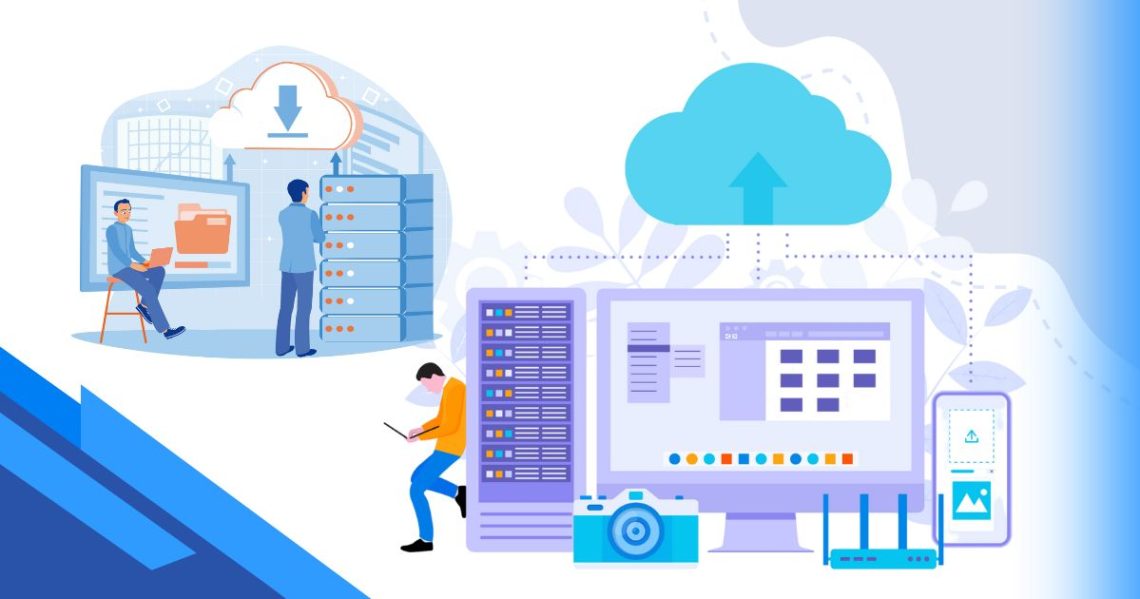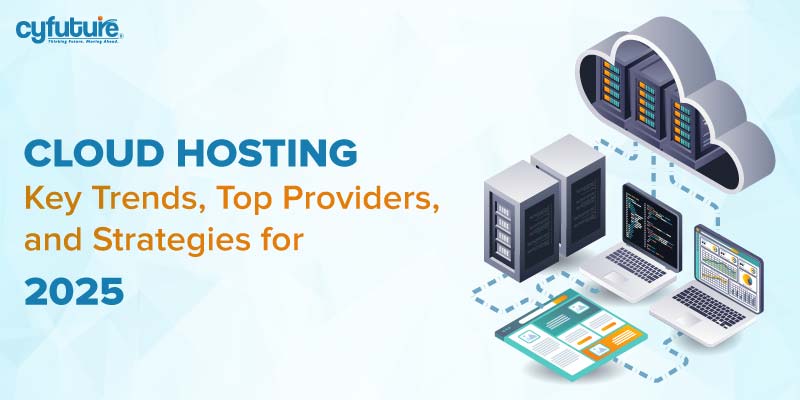Looking for the best cloud services and hosting that truly fit your needs? Whether you’re running a small business, managing a growing website, or launching an app, finding reliable and fast cloud hosting can feel overwhelming.
You want a service that’s secure, easy to use, and affordable—without the hassle of complicated setups or hidden costs. That’s where Sinosend comes in. Designed with your convenience in mind, Sinosend offers powerful cloud hosting solutions that boost your online presence while keeping things simple.
Ready to discover how the right cloud service can transform your digital experience? Keep reading to find out why Sinosend stands out and how it can work for you.
Introduction To Cloud Services & Hosting
Cloud services and hosting have transformed how businesses store data and run applications. They offer flexible, scalable, and cost-effective solutions that replace traditional physical servers. Cloud hosting allows companies to access resources over the internet without managing hardware.
Understanding the basics of cloud hosting helps businesses choose the right service to improve performance and reduce costs.
Understanding Cloud Hosting And Its Purpose
Cloud hosting means storing data and applications on virtual servers hosted in multiple data centers. It differs from traditional hosting by using a network of servers instead of a single machine.
- Offers high availability and uptime
- Scales resources on demand
- Provides better security and backup
- Reduces hardware costs
This setup ensures your website or app stays online even if one server fails. Businesses benefit from flexibility and improved performance.
Why Cloud Hosting Is Essential For Modern Businesses
Modern businesses need fast, reliable, and scalable hosting to stay competitive. Cloud hosting meets these needs by:
- Handling traffic spikes without slowdowns
- Allowing remote access and collaboration
- Lowering upfront IT expenses
- Supporting business growth with easy upgrades
- Enhancing disaster recovery and data protection
Companies using cloud hosting can focus more on innovation than on managing IT infrastructure.
Overview Of Top Cloud Service Providers
Several major providers dominate the cloud hosting market. Each offers unique features and global data centers.
| Provider | Key Features | Strengths |
|---|---|---|
| Amazon Web Services (AWS) | Wide range of services, large global network | Market leader with strong reliability and scalability |
| Microsoft Azure | Seamless integration with Microsoft products | Popular among enterprises using Windows ecosystem |
| Google Cloud Platform (GCP) | Advanced AI tools, high-performance computing | Strong in data analytics and machine learning |
Choosing a provider depends on business needs, budget, and technical requirements. Providers like Sinosend also offer tailored cloud hosting solutions focused on ease of use and efficient delivery.

Key Features Of Leading Cloud Hosting Providers
Top cloud hosting providers offer distinct features that suit different business needs. They provide reliable infrastructure, diverse services, and strong security. Understanding these key features helps choose the right platform for your projects.
Amazon Web Services (aws): Extensive Infrastructure And Service Variety
AWS leads with a vast global network of data centers. It offers over 200 fully featured services. Users benefit from:
- Wide geographic coverage with multiple availability zones
- Flexible compute options like EC2 and Lambda
- Strong security and compliance certifications
- Rich partner ecosystem and marketplace
AWS suits startups to large enterprises needing scalability and variety.
Microsoft Azure: Enterprise Integration And Hybrid Cloud Strength
Azure excels in integrating with Microsoft products. It supports hybrid cloud setups, combining on-premises and cloud resources. Key features include:
- Seamless connection with Windows Server, Active Directory, and Office 365
- Hybrid cloud tools like Azure Arc and Azure Stack
- Strong AI and machine learning services
- Comprehensive compliance and security controls
Azure is ideal for businesses relying on Microsoft software and hybrid environments.
Google Cloud Platform (gcp): Advanced Ai And Data Analytics Capabilities
GCP stands out with powerful AI and analytics tools. It supports large-scale data processing and machine learning projects. Important features include:
- BigQuery for fast, serverless data warehousing
- TensorFlow and AI Platform for machine learning
- Global network with low latency and high reliability
- Open-source friendliness and Kubernetes leadership
GCP fits businesses focused on data-driven applications and AI development.
Specialized Cloud Hosting Options: Nexcess, Cloudways, And Others
Specialized providers offer tailored cloud hosting solutions. They focus on ease of use, performance, and specific platforms:
| Provider | Key Features | Best For |
|---|---|---|
| Nexcess | Managed hosting, global data centers, optimized for WordPress and Magento | E-commerce and content websites |
| Cloudways | Managed cloud hosting, supports multiple cloud infrastructures, simple control panel | Developers and small businesses needing flexibility |
| Others (DigitalOcean, Vultr) | Affordable VPS, developer-friendly tools, fast deployment | Startups and developers with technical expertise |
These options provide focused hosting experiences beyond the big three providers.
Pricing And Affordability Breakdown
Cloud services and hosting pricing can vary widely. Understanding the cost structures helps businesses choose wisely. Pricing affects project budgets, scalability, and long-term costs. This section breaks down pricing for major providers and affordable alternatives. It also explains how pricing models fit different project sizes.
Comparing Cost Structures Across Aws, Azure, And Gcp
The top three cloud providers—AWS, Microsoft Azure, and Google Cloud Platform (GCP)—use complex pricing models. These often include pay-as-you-go, reserved instances, and spot pricing.
| Provider | Pricing Model | Key Features | Typical Cost Range |
|---|---|---|---|
| AWS | On-demand, Reserved, Spot | Wide service range, flexible billing | From $0.0116/hr (t3.micro) to premium enterprise levels |
| Azure | Pay-as-you-go, Reserved Instances | Strong Windows integration, hybrid cloud | Starts around $0.013/hr (B1s VM) |
| GCP | Pay-as-you-go, Sustained use discounts | Good for AI, data analytics | Starting near $0.0106/hr (e2-micro) |
Note: Pricing changes based on region, usage, and service type. Reserved or committed use plans reduce costs significantly.
Affordable Alternatives: Contabo, Hetzner, Digitalocean, And More
Budget-conscious users choose affordable cloud and hosting providers like Contabo, Hetzner, and DigitalOcean. These providers offer simpler pricing and lower entry costs.
- Contabo: VPS and dedicated servers starting from $6/month. Known for large storage and RAM options.
- Hetzner: Reliable dedicated servers and cloud instances starting around €3/month. Popular in Europe.
- DigitalOcean: Cloud droplets from $5/month. Easy setup, developer-friendly.
- Other options include Vultr, Linode, and OVHcloud with competitive pricing.
These alternatives suit small businesses, startups, or projects with steady workloads. They offer fixed pricing plans without complex billing.
How Pricing Models Impact Small To Large Scale Projects
Pricing models affect projects differently based on scale and growth.
- Small projects: Benefit from fixed, low-cost plans. Predictable monthly fees help budget control.
- Medium projects: May need reserved instances or committed use discounts to save money.
- Large projects: Require scalable, flexible pricing with volume discounts and spot instances to lower costs.
Complex pricing models of AWS, Azure, and GCP can lead to unexpected bills without careful monitoring. Affordable providers offer simpler billing but less global coverage or advanced features.
Choosing the right provider and plan depends on project size, growth expectations, and technical needs.

Pros And Cons Based On Real-world Usage
Choosing the right cloud service or hosting provider impacts business success. Real users share insights on strengths and weaknesses. This helps to make a balanced decision.
Strengths And Weaknesses Of Aws In Practical Applications
Amazon Web Services (AWS) leads the cloud market with a wide range of tools and services. Its global network ensures strong performance and reliability.
- Strengths:
- Extensive service portfolio covering all cloud needs
- Robust security features and compliance certifications
- High scalability and global data center presence
- Strong support and large partner ecosystem
- Weaknesses:
- Complex pricing models that may confuse users
- Steep learning curve for beginners
- Occasional service outages reported by users
Evaluating Microsoft Azure’s Performance And Limitations
Microsoft Azure integrates well with Microsoft products, appealing to enterprise users. It offers a wide variety of services and strong hybrid cloud options.
- Strengths:
- Seamless integration with Windows and Office tools
- Good support for hybrid and multi-cloud setups
- Strong AI and analytics services
- Competitive pricing for enterprise clients
- Weaknesses:
- Interface can be less intuitive than competitors
- Some users report slower deployment times
- Support sometimes criticized for responsiveness
Google Cloud Platform: Benefits And Potential Drawbacks
Google Cloud Platform (GCP) focuses on data analytics, machine learning, and containerized applications. Users praise its innovation and network speed.
- Benefits:
- Strong performance in big data and AI services
- Competitive pricing and flexible billing options
- Excellent Kubernetes and container support
- Global network infrastructure with low latency
- Potential Drawbacks:
- Smaller market share than AWS and Azure
- Fewer enterprise-focused tools and integrations
- Limited customer support options in some regions
Reviewing Niche Providers: Performance Vs. Cost Considerations
Niche cloud providers often offer tailored solutions and cost savings. They suit startups and small businesses with specific needs.
| Provider | Performance | Cost | Best Use Case |
|---|---|---|---|
| DigitalOcean | Good for simple apps, fast setup | Affordable pricing with predictable bills | Startups, developers needing quick deployment |
| Vultr | Reliable with global data centers | Low-cost options, pay-as-you-go | Small to medium projects, VPS hosting |
| Kamatera | Flexible cloud infrastructure | Competitive pricing with customization | Businesses needing tailored cloud servers |
Balancing performance and cost is key. Niche providers may lack broad features but excel in price and simplicity.
Recommendations For Ideal Users And Scenarios
Choosing the right cloud service depends on the user’s needs and business size. Different providers excel in various areas. Understanding who will use the service and for what purpose helps pick the best option. Below are tailored recommendations for different user groups and situations.
Choosing The Best Cloud Provider For Enterprises And Large Businesses
Enterprises and large businesses require robust, scalable, and secure cloud platforms. These providers offer extensive global infrastructure and a wide range of services to meet complex demands.
- Amazon Web Services (AWS): The market leader with comprehensive tools and global data centers.
- Microsoft Azure: Ideal for businesses using Microsoft products, with strong hybrid cloud capabilities.
- Google Cloud Platform (GCP): Great for data analytics and AI-driven services.
These providers support large-scale operations with strong security and compliance features. Enterprises benefit from their extensive partner ecosystems and support.
Best Cloud Hosting For Startups And Small Businesses
Startups and small businesses need affordable, easy-to-use, and flexible hosting solutions. Simplicity and cost-efficiency are key factors.
| Provider | Strengths | Best For |
|---|---|---|
| DigitalOcean | Simple setup, predictable pricing, and developer-friendly. | Small businesses needing cloud VPS and managed databases. |
| Cloudways | Managed hosting with easy scaling and performance optimization. | Startups wanting hassle-free hosting without deep technical skills. |
| Sinosend | Cost-effective with reliable cloud infrastructure for growing businesses. | Small companies needing affordable cloud services with good support. |
Ideal Solutions For Developers And Tech-savvy Users
Developers and tech experts prefer customizable, high-performance cloud platforms. They need control and advanced features.
- Heroku: Easy app deployment with support for multiple languages.
- Pulumi: Allows infrastructure as code using familiar programming languages.
- Vultr and Kamatera: Offer flexible cloud servers with quick provisioning.
These options provide APIs, automation tools, and integration capabilities to streamline development workflows.
When To Opt For Specialized Or Budget-friendly Cloud Hosting
Specialized or budget-friendly hosting suits users with specific needs or limited budgets. These can include niche applications or basic websites.
- Specialized hosting—Choose for high-performance needs like gaming servers or media streaming.
- Budget-friendly hosting—Good for simple blogs, small e-commerce, or startups with tight budgets.
Providers like Sinosend offer affordable plans without sacrificing reliability. This balance helps businesses save money while maintaining decent performance.

Conclusion: Making The Right Choice For Ultimate Performance
Selecting the best cloud service and hosting provider shapes your digital success. The right choice ensures reliable performance, scalability, and cost efficiency. Cloud hosting affects website speed, uptime, and security.
Focus on providers with strong infrastructure and excellent support. Balancing your needs with provider strengths leads to smooth operations and growth.
Summarizing Key Factors For Selecting A Cloud Hosting Provider
- Performance: Fast load times and minimal downtime matter.
- Scalability: Ability to grow resources with your business.
- Security: Robust protection against cyber threats and data loss.
- Support: Responsive customer service is crucial for quick issue resolution.
- Pricing: Transparent and flexible plans to fit your budget.
- Global Infrastructure: Multiple data centers improve speed worldwide.
Future Trends In Cloud Services To Watch
- Edge Computing: Processing data closer to users to reduce latency.
- AI Integration: Enhanced automation and analytics in cloud platforms.
- Serverless Architecture: Simplifies deployment and scales automatically.
- Multi-cloud Strategies: Combining services from different providers for flexibility.
- Green Cloud: Energy-efficient data centers to lower environmental impact.
Final Tips For Maximizing Cloud Hosting Performance
- Choose a provider with data centers near your users.
- Optimize your applications for cloud environments.
- Use monitoring tools to track uptime and speed.
- Regularly update security settings and backups.
- Scale resources dynamically to handle traffic spikes.
Sinosend offers reliable cloud hosting solutions designed for ultimate performance and ease of use. Explore options at Sinosend to fit your needs.
Frequently Asked Questions
What Is The Best Cloud Hosting Provider?
The best cloud hosting providers are Amazon Web Services (AWS), Microsoft Azure, and Google Cloud Platform (GCP). AWS leads in services and infrastructure. Azure excels in enterprise integration. GCP specializes in data analytics and AI. Choose based on your specific needs and workload requirements.
Which Cloud Platform Is Best Hosting?
Amazon Web Services (AWS), Microsoft Azure, and Google Cloud Platform (GCP) lead in cloud hosting. AWS offers vast services, Azure integrates well with Microsoft tools, and GCP excels in AI and analytics. Choose based on your specific needs and budget.
What Are The Top 3 Cloud Service Providers?
The top three cloud service providers are Amazon Web Services (AWS), Microsoft Azure, and Google Cloud Platform (GCP). AWS leads in market share and service variety. Azure excels in enterprise integration. GCP specializes in data analytics and AI. These providers dominate global cloud computing markets.
What Are The 4 Main Cloud Services?
The four main cloud services are Infrastructure as a Service (IaaS), Platform as a Service (PaaS), Software as a Service (SaaS), and Serverless Computing. These models offer scalable resources, development platforms, software applications, and event-driven execution respectively.
Conclusion
Choosing the right cloud service can boost your business efficiency. Reliable hosting ensures your data stays safe and accessible. Providers like AWS, Azure, and Google Cloud offer strong features. Sinosend adds value with its unique cloud hosting solutions. Compare options based on your needs and budget.
Good hosting supports growth and smooth operations. Stay updated with cloud trends to make smart choices. Your cloud service should match your goals clearly and simply.
